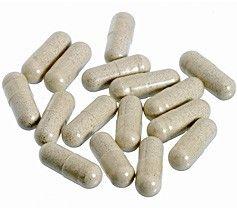222 mg fenbendazole: Safe Use in Dogs and Cats
Wiki Article
Understanding the Conveniences and Uses of Fenbendazole in Veterinary Medicine
Fenbendazole has developed itself as a crucial anthelmintic in vet medication. Its ability to target various parasitic infections makes it a beneficial tool for vets. The medication's device interrupts crucial cellular procedures in bloodsuckers, resulting in reliable treatment end results. Nevertheless, its safety and security account ranges varieties, necessitating cautious consideration in its use. Understanding these characteristics can lose light on fenbendazole's more comprehensive ramifications in vet treatment and ongoing study into its prospective beyond standard applicationsMechanism of Activity of Fenbendazole

Usual Parasitical Infections Dealt With With Fenbendazole
A selection of parasitic infections are successfully treated with fenbendazole, making it a functional option in vet medication. This anthelmintic agent is particularly reliable versus nematodes, including roundworms and hookworms, which frequently affect dogs and felines. It is additionally utilized for the treatment of cestodes, such as tapeworms, supplying a wide range of action versus both kinds of intestinal tract parasites. Additionally, fenbendazole is advantageous in handling infections created by protozoa, especially Giardia, which can bring about stomach distress in pets. Its efficiency reaches treating certain lungworms in pooches and felines, attending to breathing wellness problems linked to these parasites. Generally, fenbendazole's capacity to target multiple parasitic types makes it an important tool in veterinary method, making sure the wellness and wellness of pet dogs affected by these usual infections.Safety and security and Effectiveness in Different Pet Species
The safety and security and effectiveness of fenbendazole differ amongst different animal varieties, highlighting the significance of species-specific considerations in veterinary medication. In dogs, fenbendazole is generally well-tolerated and reliable against a range of gastrointestinal bloodsuckers, including roundworms and hookworms. For felines, nevertheless, its use is much less typical and may need cautious application because of potential adverse reactions.In animals, such as livestock and lamb, fenbendazole shows effectiveness versus numerous endoparasites, adding to improved wellness and performance. The pharmacokinetics and possible side impacts can vary significantly between species, necessitating cautious evaluation by veterinarians.
Horses additionally respond favorably to fenbendazole, particularly for dealing with strongyles and ascarids, though dose and administration paths need to be tailored to their distinct physiology. As a result, recognizing these distinctions is important for maximizing treatment end results and making sure animal welfare across diverse types.
Administration and Dosage Standards
Appropriate management and dose guidelines are vital for taking full advantage of the therapeutic impacts of fenbendazole while decreasing possible adverse effects. The dosage commonly varies relying on the species being dealt with, the specific problem, and the solution of fenbendazole made use of. fenbendazole 444. For pet dogs and felines, an usual dosage is 50 mg/kg body weight, go right here administered as soon as daily for 3 consecutive days, however veterinarians might readjust this based upon individual health assessmentsIt is essential to administer fenbendazole with food to enhance absorption and minimize gastrointestinal trouble. The medicine is offered in numerous kinds, consisting of granules and paste, allowing for versatile administration choices. Monitoring the animal's response during and after therapy is recommended to validate efficiency and safety. Additionally, veterinary advice is important to establish the appropriate duration of therapy based on the kind of parasitic infection being dealt with, guaranteeing suitable results for the animal's wellness.
Future Viewpoints and Research Study on Fenbendazole
Research on fenbendazole continues to progress, focusing on its potential applications beyond standard antiparasitic usages. Current researches have actually explored its performance in treating different types of cancer, specifically in vet oncology. Preliminary information suggest that fenbendazole might prevent the growth of lump cells and improve the effects of various other chemotherapeutic agents.Scientists are examining its role in managing stomach problems in pets, highlighting its anti-inflammatory properties. The versatility of fenbendazole for different species elevates concerns concerning its safety and security accounts and suitable application routines in diverse populaces.
As passion grows, there is a requirement for complete clinical tests to develop evidence-based standards for these unique applications. Future study may additionally explore the mechanisms behind fenbendazole's results, potentially paving the way for innovative therapeutic strategies in veterinary medication. The recurring expedition of fenbendazole could substantially boost treatment alternatives for different veterinary conditions.

Frequently Asked Questions
Is Fenbendazole Safe for Pregnant Animals?
The safety and security of fenbendazole for pregnant pets remains unsure. While some researches suggest minimal danger, veterinarians generally suggest caution and frequently discourage its use while pregnant unless the advantages clearly exceed possible threats.Can Fenbendazole Be Made Use Of in Animals?
Fenbendazole is frequently utilized in animals to treat numerous parasitical infections. fenbendazole 222. Its efficiency versus gastrointestinal worms makes it an important anthelmintic, adding to improved wellness and efficiency in pets elevated for food and fiberWhat Are the Adverse Effects of Fenbendazole?

The side impacts of fenbendazole may consist of gastrointestinal disruptions, sleepiness, and allergies. In uncommon instances, much more severe responses might happen, requiring cautious monitoring and consultation with a veterinarian address throughout therapy.
Exactly How Does Fenbendazole Compare to Other Dewormers?
Fenbendazole provides broad-spectrum effectiveness against different bloodsuckers, usually contrasting favorably to various other dewormers. Its unique system targets various life stages, making it efficient, click this while usually offering a positive safety and security profile contrasted to choices available on the marketplace.Can Fenbendazole Be Used for Treating Cancer Cells in Pets?
The potential of fenbendazole in dealing with cancer in pet dogs has gathered interest. Initial studies recommend it might prevent cancer cell growth, however better study is necessary to verify its effectiveness and safety in veterinary oncology.Report this wiki page